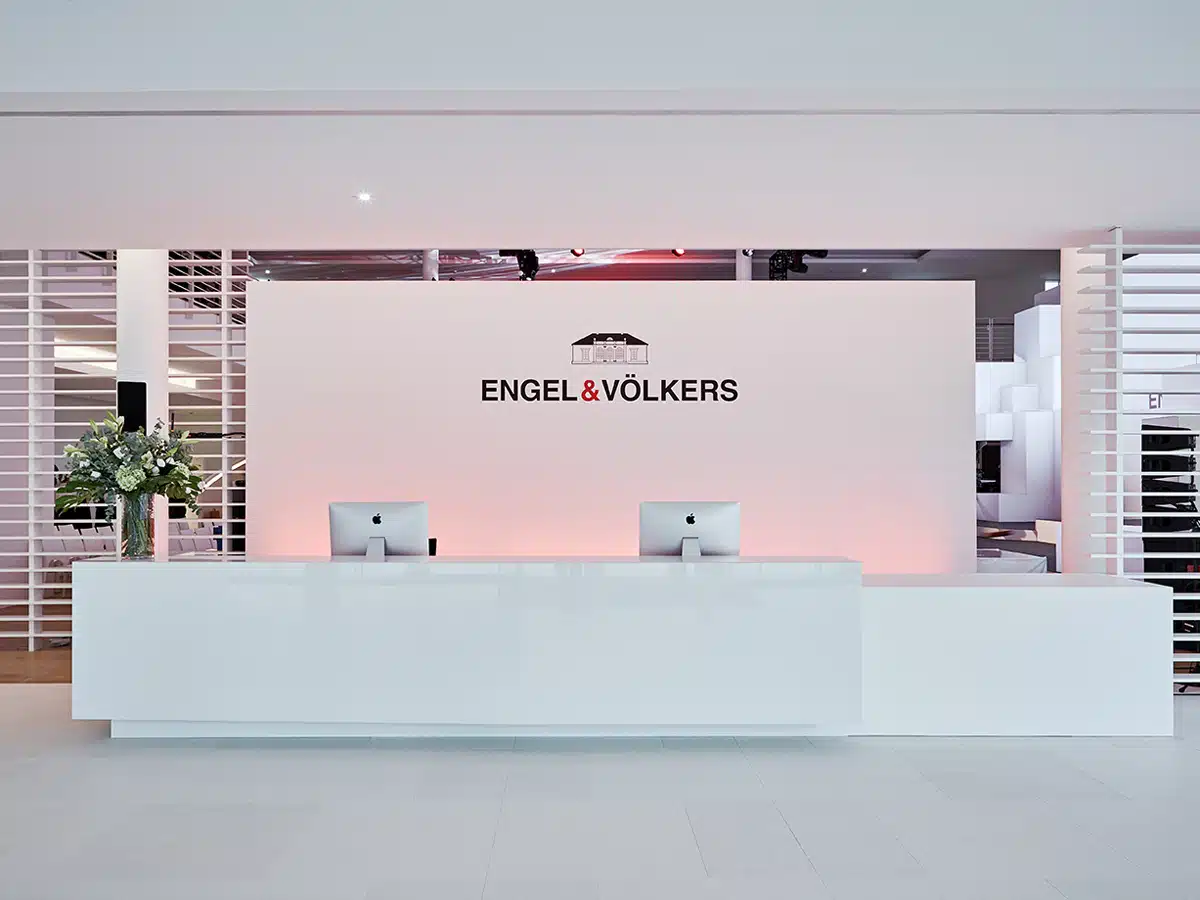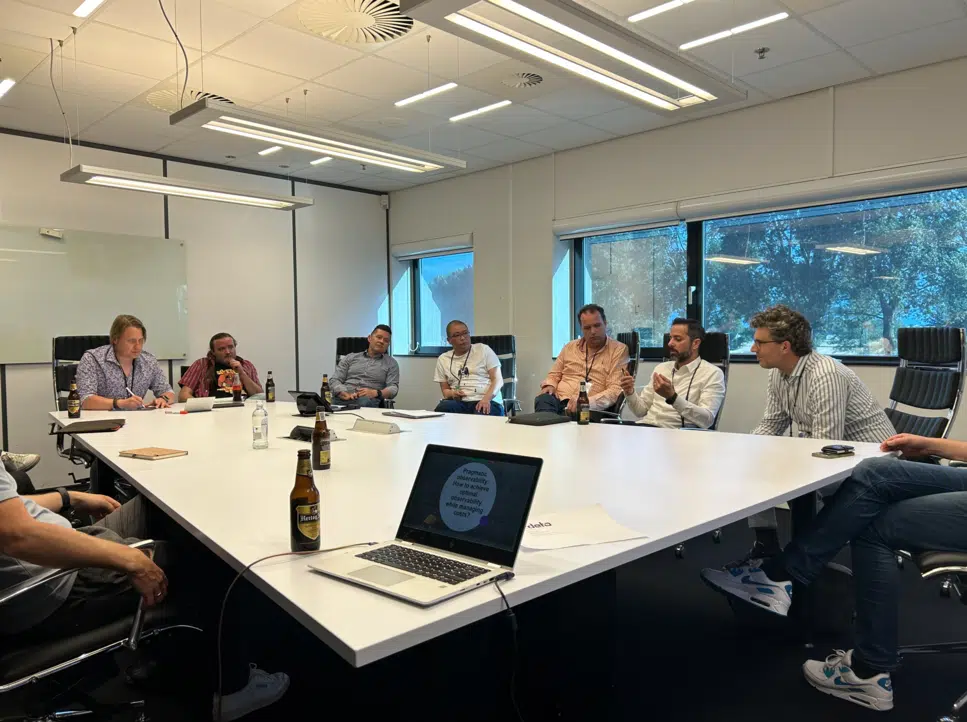We recently spoke with Iulia Costea, Talent Aquisition Manager at Marley Spoon as part of our #TalentQA series where we interview leaders in talent management and recruitment from a range of businesses from tech startups to well-known fashion brands.
Iulia talks about the benefits and challenges of working in recruitment for a startup, gives her advice to both recruiters and candidates around best interview practices and discusses the importance of employer branding.
Third Republic (TR): What are some of the benefits and challenges of working in talent acquisition for a startup firm like Marley Spoon?
Iulia Costea (IC): It’s incredibly fast-moving – this is both a benefit and a challenge depending on the type of environment you like to work in. For me, working in a fast-paced firm is a lot of fun, but can of course, be stressful.
A typical challenge of working within a startup is that things that might be important today, might not be as important tomorrow. Being agile is key. You need to be able to judge what is a priority and what tasks can wait.
One of the best benefits is the autonomy you get in a startup. As a recruiter, I’ve been able to build processes, which I really enjoy and is a lot of fun. From a recruitment perspective, the fact that a lot of startups operate with flat hierarchies can be hugely beneficial. There are less hoops to jump through, so processes can be a lot more flexible.
TR: Could you provide your best interviewing practices for recruiters?
IC: One of the first things that comes to mind when thinking about interviewing best practices, is to strike a balance between professionalism and friendliness. Of course, it’s important to be professional, however getting the balance right is crucial. Candidates will find it easier to open up if you put them at ease and make them feel relaxed by being friendly.
Active listening is essential. Make sure you’re genuinely listening to what your candidates have to say and ask follow up questions where appropriate. Ensure that you are complimentary of their achievements. It’s all about how you make candidates feel and give them the best experience possible whether they are successful or not.
Be an ambassador of your company. The first call to a candidate is crucial. Make sure to do a lot of selling. Provide the candidate with a clear idea of the company, talk about USPs. Give a lot of interesting information about the team they’ll be working with, what the culture is like etc. Be careful not to sugar-coat or over-sell as this is often quite obvious to candidates and can put them off.
Finally, try to stay away from very generic questions. Questions like ‘what are your weaknesses?’ will receive more scripted answers. Try to rephrase these sorts of questions to more performance evaluation questions. For example, ‘could you explain a project you have excelled in?’. These questions will receive more genuine answers and a better idea of where the candidates skills lay.
TR: What are your top tips for candidates during the interview process?
IC: It’s said a lot, but I think it’s essential to make sure to do your research. Even before your first call. Go deeper than just what’s on the ‘About Us’ page. Recruiters are always impressed when there’s something extra or you’ve noticed something unique about the company. Focus more on quality when you’re doing research. Look into news and press about the company or something that you might have in common with your interviewers.
Always prepare questions. Saying that, make sure your questions aren’t the standard, generic questions that interviewers hear all the time. Try to show an interest in the development of the role and the team you’ll be working in. You could even ask questions about the struggles and challenges the team might face.
My number one important factor would be to be clear and concise when asked questions. Take your time with your answers. It’s always better to have a think about your answers, so as not to derail. It’s ok ask questions if you’re unsure.
It’s important to remember to use analogies in interviews with recruiters and HR. Don’t assume that everyone understands what you’re talking about. Explain yourself clearly, so that everyone understands your answers.
Finally, a key takeaway from this is to always be humble, but don’t undersell yourself.
TR: Could you explain the importance of employer branding when it comes to engaging candidates in today’s increasingly digital age?
IC: Great employer branding is essential to engage the top talent. What we’re trying to do at Marley Spoon, is build a candidate friendly process. Speed and flexibility are everything, if you want to secure a top candidate you have to be flexible in your processes and accommodate their needs. Whether this means interviewing out of hours or meeting them at a place that’s more convenient for them. Community events are a great employer branding tool. We’re looking more and more at joining Women in Tech communities and attending these events. We’re also working on an employer branding video. It’s the little things you do that can make you stand out to candidates.
TR: Do you think the competitive nature of technical talent has changed the ways in which tech candidates look for work?
IC: Definitely. Candidates have become much more passive as more opportunities come to them. Saying that, candidates are incredibly active in researching potential employers. The introduction of social media and websites such as Glassdoor, means that candidates can find out a lot about a business before even interviewing. Technical candidates are definitely pickier, and rightly so. There are so many options now and a lot of noise in the market. Candidates want to be sure they are getting the best deal and can afford to look around for it. They definitely ask for more in terms of benefits. And the little things, such as breakfast, remote working and socials, can make a difference.
TR: How do you think businesses can ensure that they are attracting the top technical talent in today’s highly competitive market?
IC: The first thing I would say, is to hire for potential and train for skills. When you’re hiring, look for learning agility. And be willing to compromise on skills match. It’s important to remember that the majority of higher-level candidates will want to change roles for a step up. Think about how you can offer these candidates more responsibility.
It’s essential to be honest about the role, the team and the company. Sell problems as opportunities and always be transparent – it’s all about how you communicate the role and the business to candidates. It may be tempting but avoid over-selling. Eventually, it means you’ll pay down the line somewhere and will be less likely to secure suitable candidates. Facts are key.
TR: What advice would you give to businesses looking to build highly performing tech teams?
IC: Mindset comes first. You can look for the best tech professionals out there but if the vision and values aren’t aligned then it’s likely it won’t work out. It’s really important to have a mix of skills and levels within tech teams. Look into what areas your team could improve on and hire for these skills.
Go beyond the job description. Be flexible when it comes to requirements. If someone has 80% of the skills needed to do the job and are a great cultural fit, then they should take priority over someone with 100% of the skills and not a great fit. Invest in leadership and training. Your leaders are the ones that keep the team together. Ensure they’re aligned with the company objectives. Look beyond tech skills and ensure there is a focus on the soft skills of candidates. For any tech leader, communication skills are key.
TR: Finally, do you think that recruitment agencies can provide value in today’s competitive, fast-moving market?
IC: Yes, as they say classics always remain in style. The agencies that provide value are those who understand their industry and are true specialists. It can be challenging for agency recruiters as more and more companies want to keep the recruitment processes in-house to ensure employer branding is delivered correctly. The relationship works well when both agencies and in-house teams are transparent with one another. The agencies that are able to go beyond talent pools and source high quality passive talent can provide real value to in-house teams. I definitely believe there remains a lot of potential in using recruitment agencies.
If you’d like to take part in our #TalentQA series or you’re looking to source technical talent, get in touch today!





